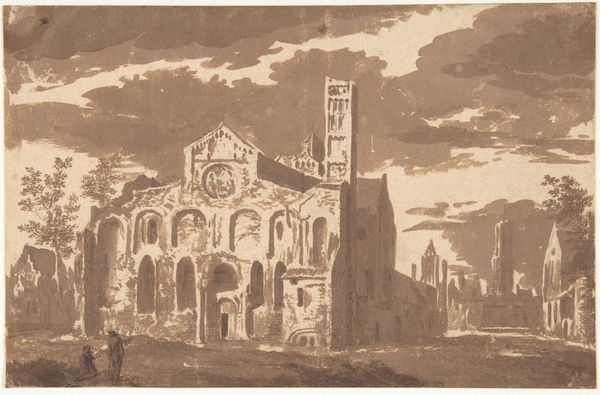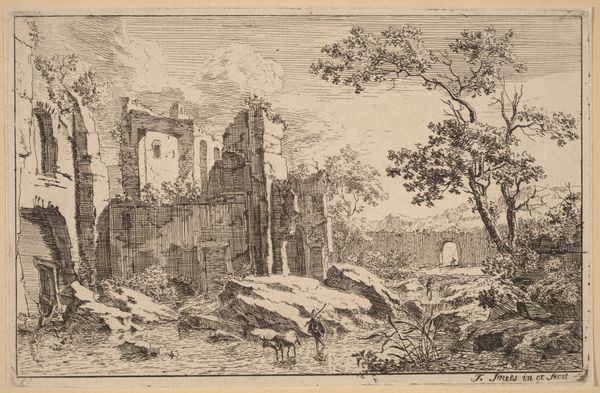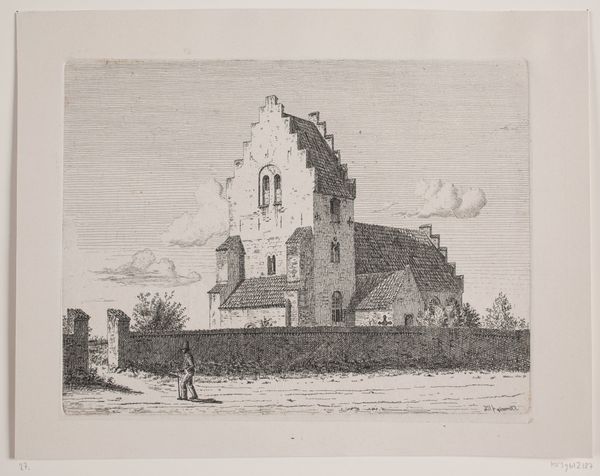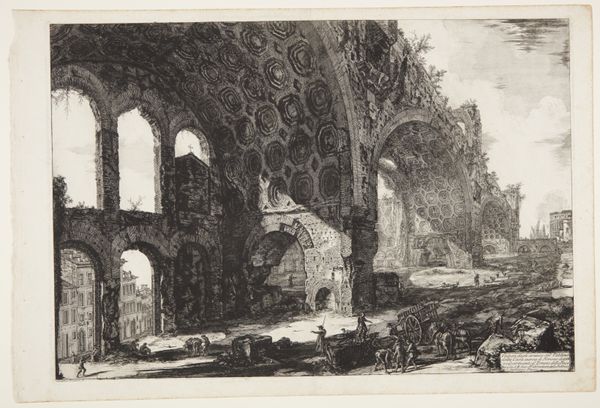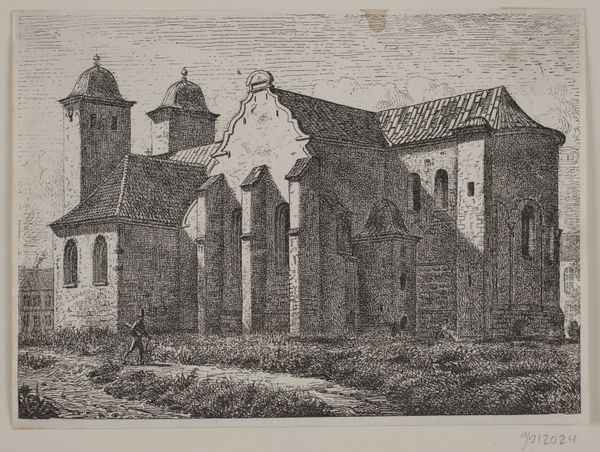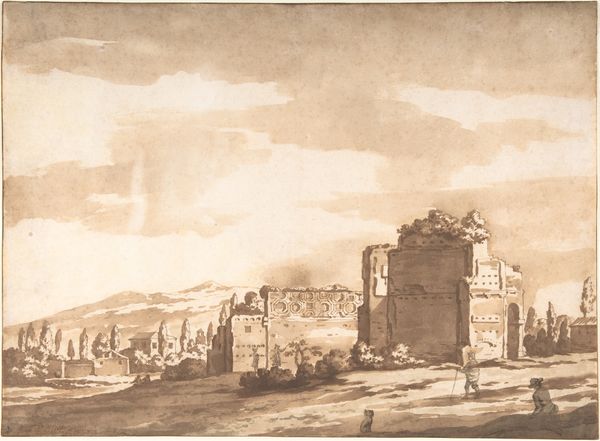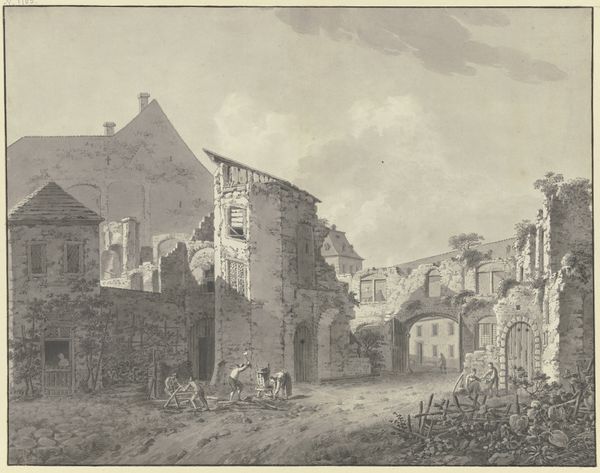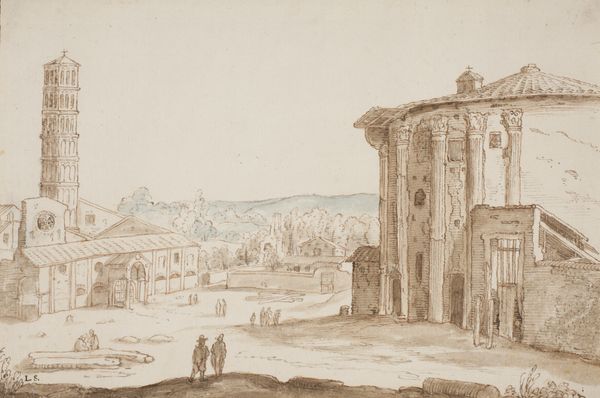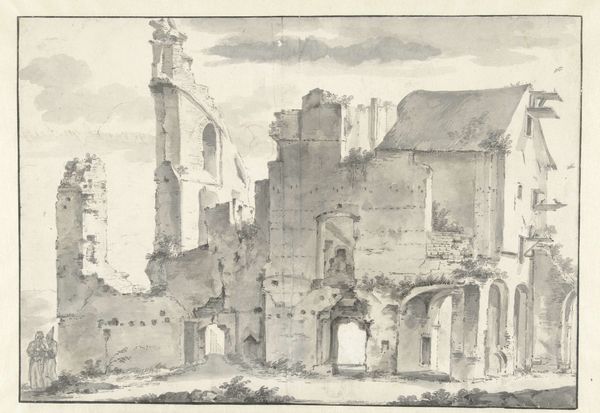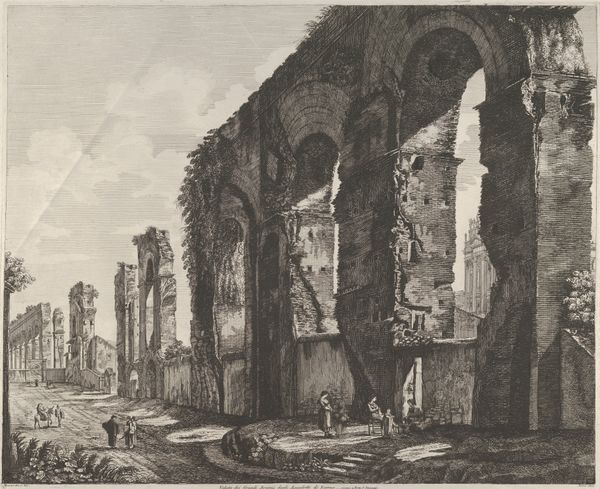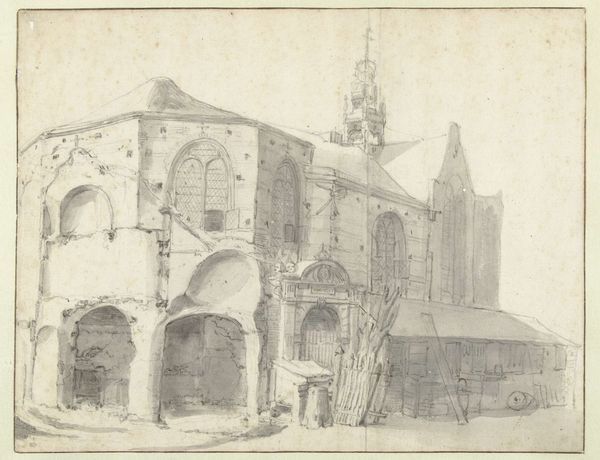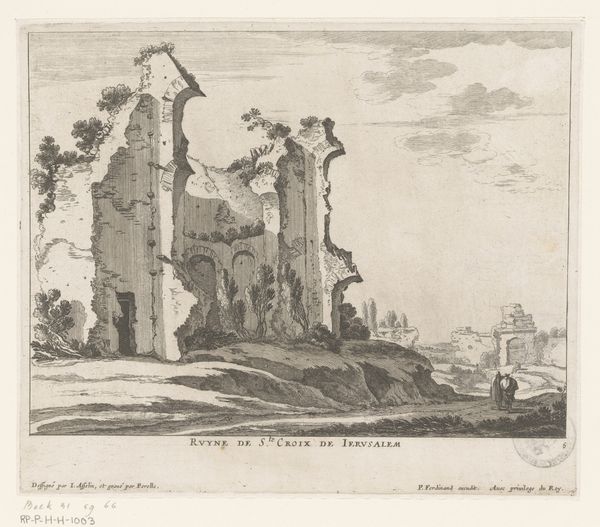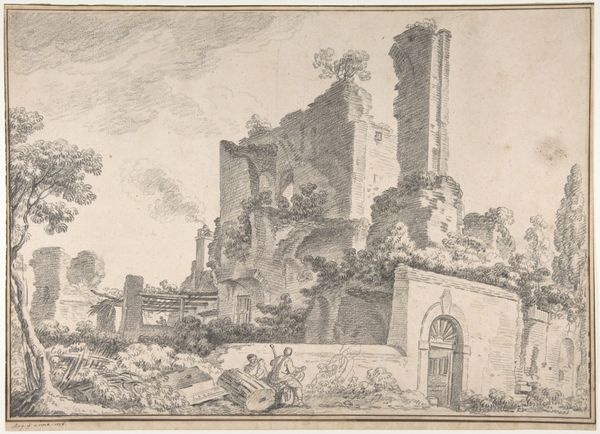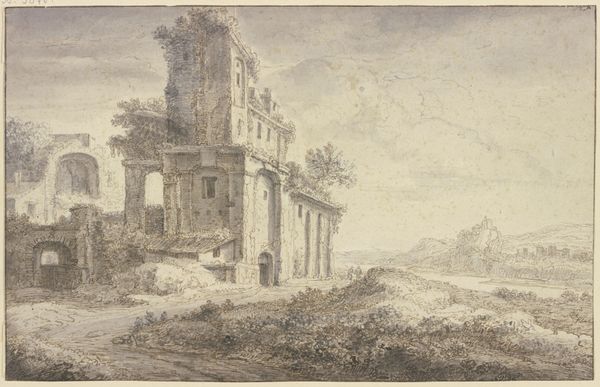
drawing, ink, indian-ink, architecture
#
pencil drawn
#
drawing
#
amateur sketch
#
netherlandish
#
aged paper
#
toned paper
#
light pencil work
#
baroque
#
photo restoration
#
pencil sketch
#
incomplete sketchy
#
ink
#
fading type
#
indian-ink
#
14_17th-century
#
watercolor
#
architecture
Copyright: Public Domain
Jan Asselijn created this drawing of Roman ruins with pen and brush in the mid-17th century. The buildings depicted symbolize the grand classical past, but here they are shown in decay. Made in Italy, this work reflects a time when Rome was no longer the center of a vast empire but a place filled with the haunting remnants of antiquity. The ruins become picturesque monuments rather than symbols of power. We can also notice other people on the road in the background, as well as what seem to be modern houses attached to the ruins. The drawing thus asks us to reflect on the layers of history, as ancient structures are reused and reimagined in later eras. To understand more, we can study how the institutions of art shaped the reception of classical antiquity. The rise of academies, museums, and art markets influenced the collecting and display of such images, giving us insight into the cultural politics of the 17th century.
Comments
No comments
Be the first to comment and join the conversation on the ultimate creative platform.
